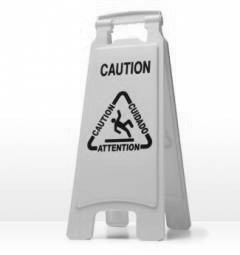As you’ve seen in the press, we’ve come up with a brand new marketing campaign. If you’ve been hiding under your desk for last couple of days and not seen it you can check it out here. Our bold marketing is trying to get across that we’re different. We’re Not the Usual Suspects. Or Not the Usual “Recruitment” Suspects. Like it?
This campaign plays on the fact that we’re different from your run of the mill Facilities Management Recruitment agency. We’re sure you’re sat there thinking “Yeah yeah, whatever. Any facilities management recruitment company can say they’re different” and let’s face it, you’re probably right. But it’s how they differ that matters. We don’t feed you a load of nonsense, nor do we disappear when things aren’t going our way.
So, what do we do that makes us so different? Well, let me tell you….
Communication
Have you ever had a conversation with your other half and you can tell they’re not really listening? Frustrating isn’t it. You feel like screaming at them “JUST LISTEN TO ME AND THEN YOU’D KNOW WHAT I’M TALKING ABOUT!!”. Or how about when you’re trying to contact someone and every time you call you’re told “They’re away from their desk” or “They’ll call you back”. Irritating is an understatement.
Now don’t get me wrong, there are obviously going to be times when we really aren’t at our desk (people do need coffee y’know!) but believe me when I say we WILL call you back. We make sure that we’re on hand whenever you want to speak to us and we maintain that communication throughout the whole recruitment process. And unlike your significant other, we WILL listen to you (albeit not necessarily about the kids homework or the water bill that needs paying).
Integrity
We’re not the Usual “Recruitment” Suspects and here’s another reason why: integrity. We have that one thing we’re sure you’ve come to realise a lot of recruiters don’t have. Integrity is vital to everything we do. We’re sure you’ve had experiences with facilities management recruiters who don’t keep you in the loop.
You know the sort – they promise you’re a perfect fit for this fab new position they’re recruiting for, they talk to you about salary expectations and swear on their dog’s, Grandmother’s, Brother’s Wife’s grave that you’ll get an interview. It’s a dead cert! But now it’s three weeks later and you’ve heard nothing.
Well we assure you we’re not like that. From a client perspective, if we can’t fill your role we’ll tell you we can’t. What we’ve learnt from our combined experience is that honesty really is the best policy and it’s important to maintain integrity. Likewise, if we can’t find you a job, we’ll tell you and if we find a position for you, we’ll explain the role, warts and all and then ask if it’s what you really want.
Relationships
It’s a nice process getting to know someone isn’t it? Finding out all about them and what makes them tick. And if you’re getting to know someone you want them to get to know you too right? That’s how it works with us too – we like getting to know you!
So tell us about yourself, your skills and attributes that make you so much better at your job than Joe Average over there.
Tell us about your business and who would be right for the role you have available. It might sound cheesy but we know that the best job fit is only possible through strong, in-depth understanding of what you need in your candidate or next job and we can only gain this understanding by building our relationships with you. Simple eh?
We’re Not the Usual “Recruitment” Suspects. We pride ourselves on our consultative approach to recruitment and it’s this that sets us apart from all the others. As you can see from our great advert in FM World (thanks design team!!) consultants Jo, Danny, Chris and Alex all cover their own specialist markets. So, if you’re looking to recruit in that area or looking for your next role, you should give one of them a call.
So, what do you reckon to this new campaign then? If you’d like to let us know what you think drop us a line at info@thefmnetwork.co.uk
Jennie Everall – Digital Marketing Executive, The FM Network
The FM Network are one of the UK’s leading Facilities Management and Building Services recruiters.


































